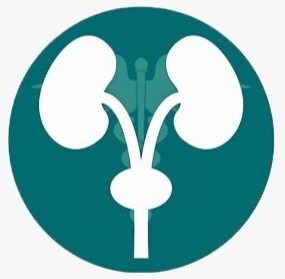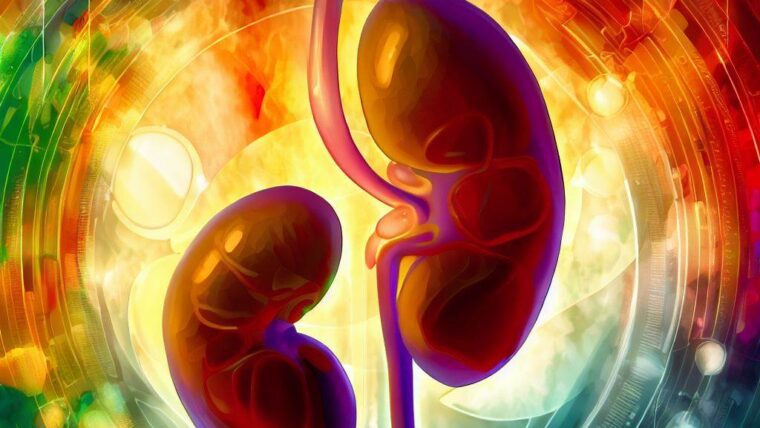Kidney stones can cause excruciating pain and discomfort, often requiring medical intervention. In severe cases, kidney stone surgery may be necessary to remove or treat the stones. In this article, we delve into the world of kidney stone surgery, exploring the various treatment options available and the recovery process. Whether you’re personally affected by kidney stones or seeking information for a loved one, this comprehensive guide will empower you with knowledge to understand kidney stone surgery and make informed decisions about your health.
Understanding Kidney Stones and the Need for Surgery
Kidney stones are solid crystalline deposits that form in the kidneys. They can range in size and composition, and their presence can cause severe pain, urinary tract infections, and other complications. When kidney stones become too large to pass naturally or cause persistent symptoms, surgical intervention may be required. Common signs and symptoms indicating the need for surgery include:
- Intense and radiating back or abdominal pain
- Blood in urine
- Frequent urination
- Difficulty urinating
- Urinary tract infections that recur or do not respond to treatment
Different Treatment Options for Kidney Stone Surgery
There are several treatment options available for kidney stone surgery, depending on the size, location, and composition of the stones. These include:
Extracorporeal Shock Wave Lithotripsy (ESWL):
This non-invasive procedure uses high-energy sound waves to break the kidney stones into smaller fragments that can pass through the urinary tract.ESWL is typically used for smaller stones and can be performed on an outpatient basis.The procedure involves the use of a specialized machine that delivers shock waves to the targeted stones.
Ureteroscopy:
Ureteroscopy is a minimally invasive procedure that involves the insertion of a thin, flexible tube called a ureteroscope into the urethra and up into the urinary tract.
This allows the surgeon to directly visualize the stones and use instruments to remove or break them up.Ureteroscopy is often recommended for stones located in the ureter or kidney.
Percutaneous Nephrolithotomy (PCNL):
PCNL is a surgical technique used to remove larger kidney stones or stones that are difficult to reach with other procedures.It involves making a small incision in the back to access the kidney and using specialized instruments to break up and remove the stones.PCNL is typically performed under general anesthesia and requires a hospital stay.
Open Surgery:
Open surgery for kidney stones is rare and is usually reserved for complex cases where other treatment options are not feasible.It involves making a larger incision in the abdomen or flank to directly access the kidney and remove the stones.Open surgery may be necessary for very large stones, stones causing significant blockage, or in certain anatomical situations.
Preparing for Kidney Stone Surgery
Before undergoing kidney stone surgery, thorough preparation is essential to ensure a successful procedure and smooth recovery. The following are important aspects of preparation:
Medical Evaluations and Diagnostic Tests: Kidney Stone Surgery
Your healthcare provider will conduct a comprehensive evaluation of your medical history, perform a physical examination, and order diagnostic tests such as blood tests, urine analysis, and imaging studies.These evaluations and tests help determine the size, location, and composition of the kidney stones and assess your overall health condition.
Pre-Operative Instructions and Guidelines: Kidney Stone Surgery
You will receive specific instructions from your healthcare team regarding fasting, medication adjustments, and any necessary lifestyle modifications before the surgery.
It’s crucial to follow these instructions carefully to minimize potential risks and ensure the procedure’s success.
Communication with the Healthcare Team:
Open and honest communication with your healthcare provider is essential. Make sure to discuss any concerns, questions, or pre-existing medical conditions that may affect the surgery or recovery process.It’s important to inform your healthcare team about any medications, supplements, or allergies you have.
The Surgical Procedure: What to Expect
The surgical procedure for kidney stone removal varies depending on the chosen treatment option. Here’s an overview of what to expect during the procedure:
Anesthesia Options and the Role of an Anesthesiologist:
Depending on the complexity of the surgery and your overall health condition, you may undergo general anesthesia or regional anesthesia.An anesthesiologist will be present to administer and monitor the anesthesia throughout the procedure, ensuring your comfort and safety.
Step-by-Step Breakdown of the Chosen Surgical Procedure:
- The surgeon will perform the specific surgical technique chosen for your case, such as ESWL, ureteroscopy, PCNL, or open surgery.
- Each procedure has its own unique steps and instruments used to break up or remove the kidney stones.
- The surgeon will work meticulously to minimize any damage to surrounding tissues and ensure the successful removal or treatment of the stones.
Potential Risks and Complications Associated with Kidney Stone Surgery
Although kidney stone surgery is generally safe, it carries certain risks and potential complications.These may include bleeding, infection, damage to nearby organs or structures, allergic reactions to anesthesia, and the formation of new kidney stones.
Your healthcare team will discuss these risks with you and take appropriate measures to minimize them.
Recovery Process and Aftercare
The recovery process following kidney stone surgery is crucial for proper healing and a smooth transition back to daily activities. Here are important aspects of the recovery process:
Post-Operative Care and Pain Management Strategies:
After the surgery, you will be closely monitored in a recovery area until you are stable and awake.Pain management strategies may include the use of prescribed medications and other techniques, such as hot or cold therapy and relaxation techniques.Follow your healthcare team’s instructions regarding pain management to ensure your comfort and facilitate healing.
Dietary and Lifestyle Recommendations for a Healthy Recovery:
Your healthcare provider will provide specific dietary recommendations based on the type of kidney stones you had and the surgical procedure performed. It’s crucial to stay well-hydrated and avoid certain foods or beverages that may contribute to stone formation.Adopting a healthy lifestyle, including regular exercise and managing underlying conditions like obesity or diabetes, can help prevent the recurrence of kidney stones.
Monitoring and Follow-Up Appointments:
Regular follow-up appointments with your healthcare provider are essential to monitor your recovery progress, evaluate the effectiveness of the surgery, and address any concerns or complications. Follow the scheduled appointments and communicate any changes or new symptoms to your healthcare team.
Conclusion: Kidney Stone Surgery
Kidney stone surgery is a viable treatment option for individuals suffering from severe kidney stones that do not pass naturally or cause significant symptoms. By understanding the different treatment options available, the surgical procedures involved, and the recovery process, individuals can approach kidney stone surgery with confidence and make informed decisions about their health. Remember to consult with a healthcare professional to determine the most suitable approach for your specific situation. With proper knowledge and support, you can overcome kidney stones and regain your quality of life.
FAQs: Kidney Stone Surgery
Is kidney stone surgery the only option for treating kidney stones?
While kidney stone surgery is a common treatment option, it is not the only choice. The treatment approach depends on various factors such as stone size, location, and composition. In some cases, smaller stones can pass naturally with the help of medication and lifestyle modifications. However, for larger stones or those causing severe symptoms, surgery may be necessary to remove or break them up.
How long does it take to recover from kidney stone surgery?
While kidney stone surgery is a common treatment option, it is not the only choice. The treatment approach depends on various factors such as stone size, location, and composition. In some cases, smaller stones can pass naturally with the help of medication and lifestyle modifications. However, for larger stones or those causing severe symptoms, surgery may be necessary to remove or break them up.
What are the potential risks and complications associated with kidney stone surgery?
Like any surgical procedure, kidney stone surgery carries certain risks and potential complications. These may include infection, bleeding, damage to surrounding organs, and anesthesia-related complications. Your healthcare provider will discuss these risks with you before the surgery and take appropriate measures to minimize them. It’s important to communicate any concerns or symptoms to your healthcare team during the recovery process.




